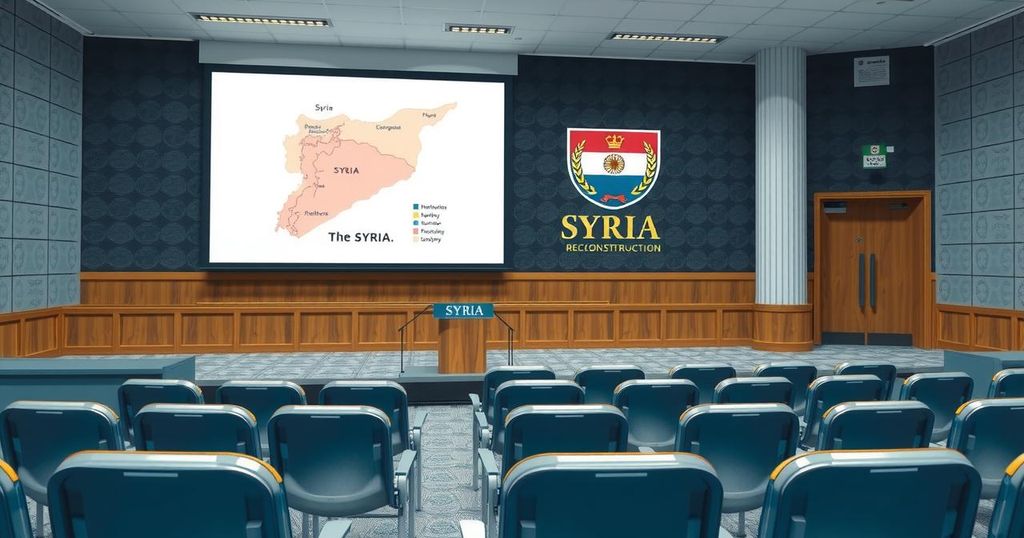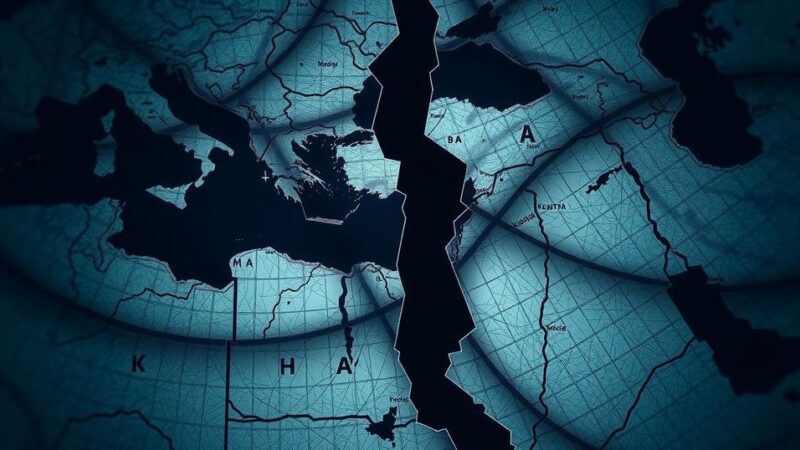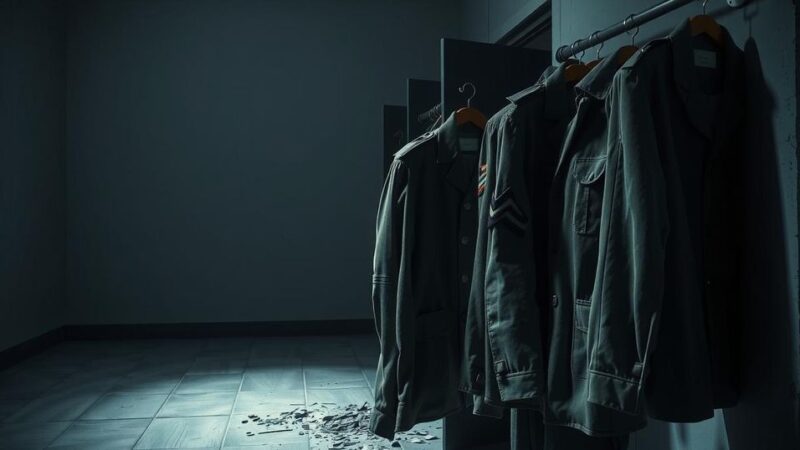The Weiser Diplomacy Center hosted a discussion on Syria’s reconstruction featuring Qutaiba Idlbi and Dr. Abdalmajid Katranji. They addressed the impact of the civil war, the new government’s strategies, and the need for international support and the urgent lifting of sanctions to facilitate recovery efforts.
The Weiser Diplomacy Center at the University of Michigan recently welcomed Qutaiba Idlbi and Dr. Abdalmajid Katranji for a discussion on Syria’s post-civil war reconstruction. The talk explored the challenges faced over the past 14 years of conflict, including the recent transition of power from Bashar al-Assad to Ahmed al-Sharaa, previously aligned with Al-Qaeda, who now leads the nation under the new regime.
Idlbi emphasized the profound toll the civil war has taken on Syria, resulting in a significant brain drain and displacement of the population. “There is a lot for Syrians to rebuild; half of Syria has left the country,” he mentioned regarding the dire situation. Notwithstanding the destruction, he noted that many Syrians feel liberated from previous authoritarian rule, expressing both joy and longing for a better future.
Disagreements exist regarding Sharaa’s ties to extremist groups; both Idlbi and Katranji contend that he has distanced himself from them, highlighting his efforts against Al-Qaeda and ISIS. Katranji shared his experiences in Idlib, highlighting the effectiveness of civic institutions contrary to the disorganized conditions witnessed in Assad-controlled areas during relief efforts.
Idlbi noted the civil war, while devastating, enabled Syrians to create self-governing bodies in a manner not seen in Iraq post-Ba’ath regime. He asserted that while the United States has historically failed in these regions, it could contribute positively to Syria’s reconstruction, asserting, “They have built the Syrian Dream, which I believe is very similar to the American Dream.”
Katranji criticized the ongoing sanctions imposed under the Caesar Syria Civilian Protection Act, asserting that failing to lift them could lead to further instability. He called for urgent collaboration between the U.S. and international organizations to engage in rebuilding efforts: “The next three months are absolutely critical in which we can engage our civic leadership.”
Art & Design senior Razaan Killawi, co-president of Students Organize for Syria, expressed appreciation for the event, urging students to engage in real-time reporting from the ground to combat disinformation surrounding Syria.
This dialogue at the Weiser Diplomacy Center synthesized expert insights on the complexities of Syria’s path to reconstruction, emphasizing both the inherent challenges and the potential for growth amidst adversity.
The Weiser Diplomacy Center’s event provided crucial insights into the complex challenges and opportunities facing Syria following the civil war. Experts highlighted the need for international involvement in reconstruction efforts, while recognizing the importance of nurturing self-governing initiatives initiated by Syrians themselves. The dialogue underscored the critical role of civic institutions in recovery efforts and the urgency of reassessing external policies, particularly sanctions, that hinder progress.
Original Source: www.michigandaily.com






